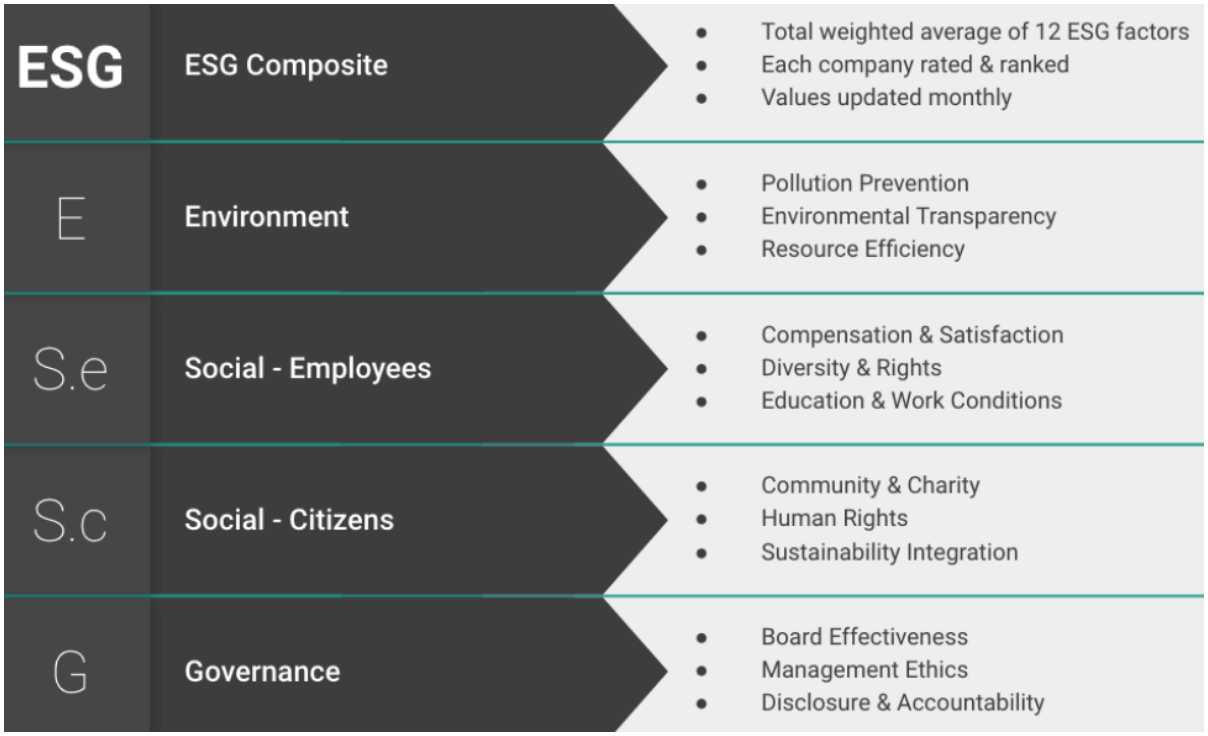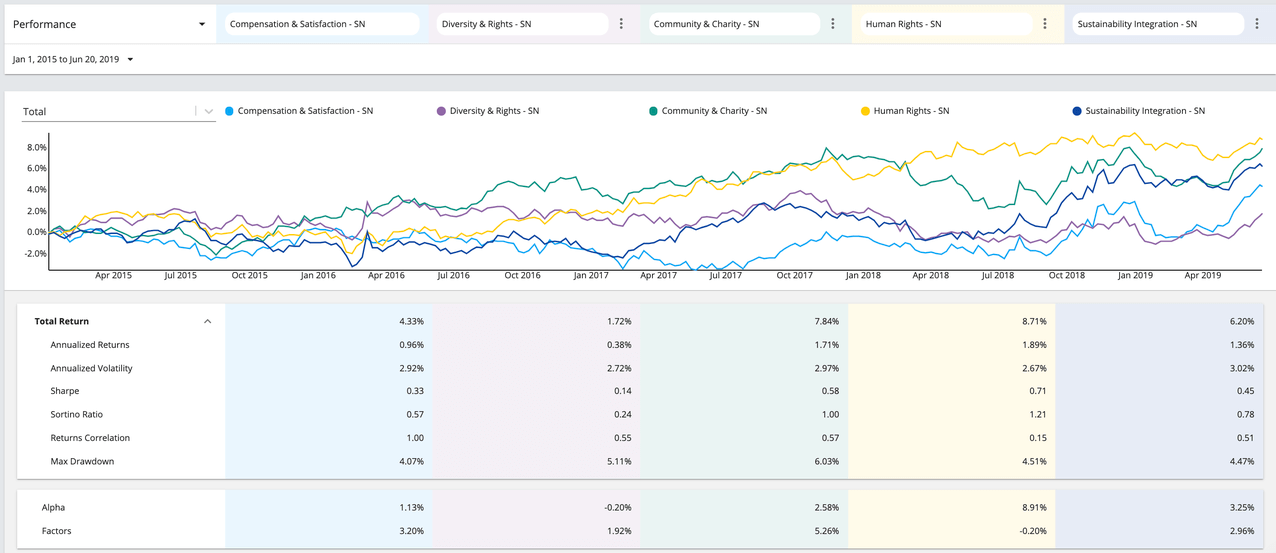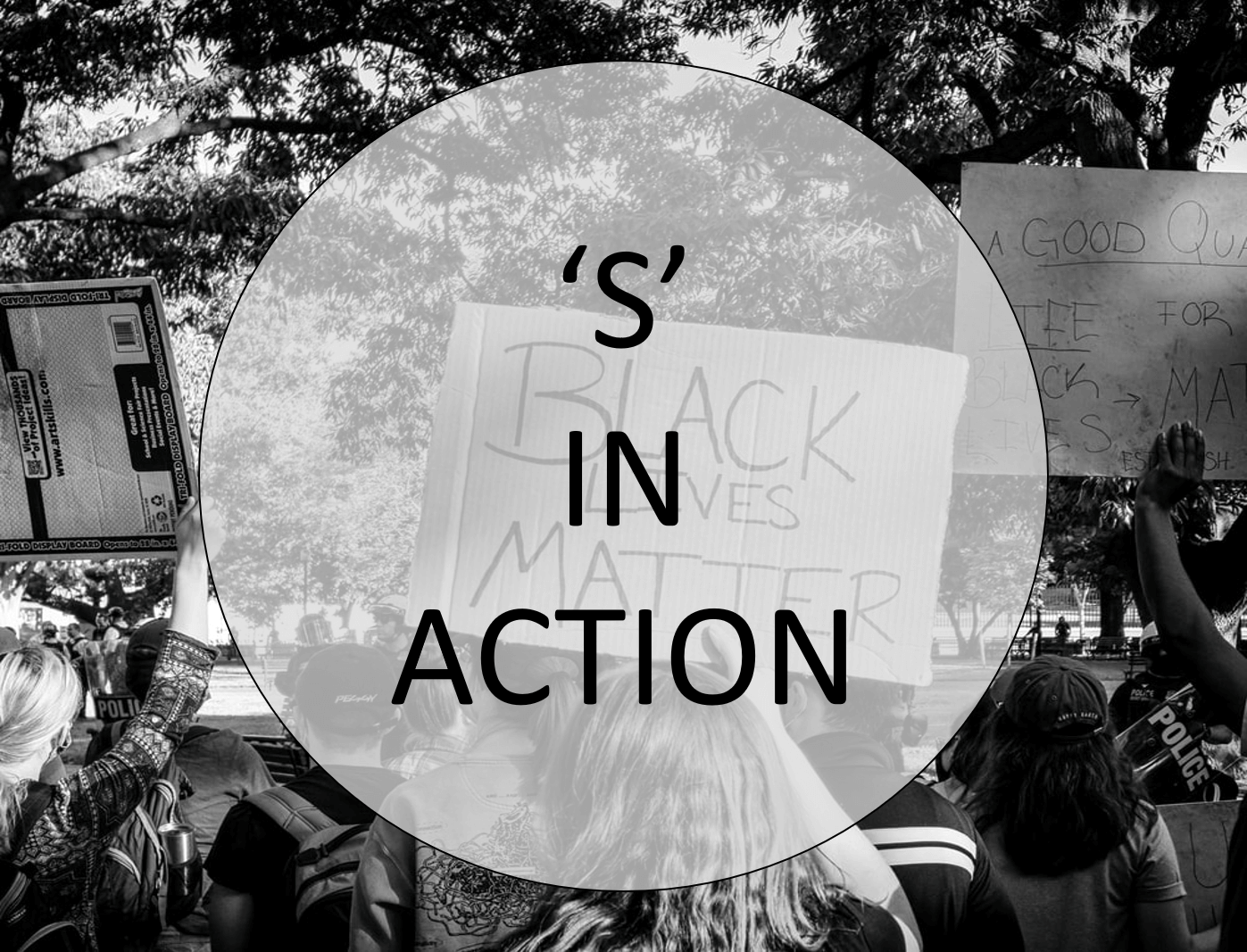(This is a guest post by our partner, Omega Point, from their Factor Spotlight Series)
This past week we have been both outraged and heart-broken watching protests against racial injustice unfold across the country. We stand in full solidarity with the Black community to fight systemic racism. We pledge to do our part to listen and to learn more about how we can impact change using the resources and tools available to us within the investment management industry.
We believe that the investment community is in an especially unique position to enact change by choosing where we deploy our capital. As many of you know, the use of ESG or Environmental, Social, and Governance factors in investing is not a new practice in our industry. Over the last several decades, funds have shifted their investment practices to include investing in green/environmental companies, however, fewer funds have prioritized social factors. The ‘S’ factor scores a company’s diversity, human labor practices, community facing programs, compensation and more. A company’s ‘S’ factor score is also significant in determining how effective it will be impacting widespread social change.
Over the next several weeks, we will focus on examining Social factors and demonstrate, with both external and direct empirical research that companies that score higher on ‘S’ factors are-on average-better performers over the long term than companies with poor ‘S’ scores. We think that this is a powerful signal to the investment management community as it represents a positive feedback loop:
- Investors allocate capital to companies with strong social practices THUS allowing those companies to invest in programs and movements such as Black Lives Matter AND drive higher returns for those investors.
We believe it is imperative that the investment industry unite in driving broader social change, and we stand by you to help implement socially responsible practices into your investment process.
What Are The Social Factors?
OWL Analytics aggregates and optimizes over 100 million ESG data points for 25,000+ companies across 400+ sources of ESG research. This broad analytical foundation eliminates much of the subjectivity inherent in tracking non-standardized investment themes. The purpose of measuring companies against these ESG factors is to quantify how well a company manages their material risks and opportunities relating to their impact on the environment, their stakeholder relationships, and their internal governance procedures.

OWL organizes the ‘S’ in ESG into 6 factors bucketed into 2 broad categories that are aligned with the United Nations Principles for Responsible Investment (UN PRI) sustainable development goals.:
1. Social – Employees
- Compensation & Satisfaction
- Diversity & Rights
- Education & Work Conditions
2. Social – Citizens
- Community & Charity
- Human Rights
- Sustainability Integration
Measuring the Investment Importance of Social Factors
Last summer, we published a Factor Spotlight on Socially Conscious investing. To summarize this piece, we found that our portfolios built to isolate the Social factors ALL showed positive performance between Jan 2015 and June 2019. These portfolios were designed as long/short market and sector neutral with a pure focus on the Social factors. Below is a summary table showing this insight.

We found this to be an encouraging piece of evidence. In the following weeks we will dive deeper into each of these factors and also highlight recent performance.
The Multi-Trillion Dollar Question – Can The Investment Community Unite For Social Change?
This week, we were encouraged to see bold actions to the Black Lives Matter movement taken by many companies, including Bank of America and Nike. As a community that invests trillions of dollars each year into the financial markets, we can make an impact of immense proportions not just this year, but every year.
OWL Analytics and Omega Point looks forward to partnering with many of you so that we may all realize this vision.




